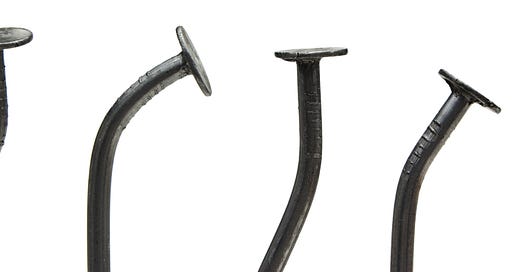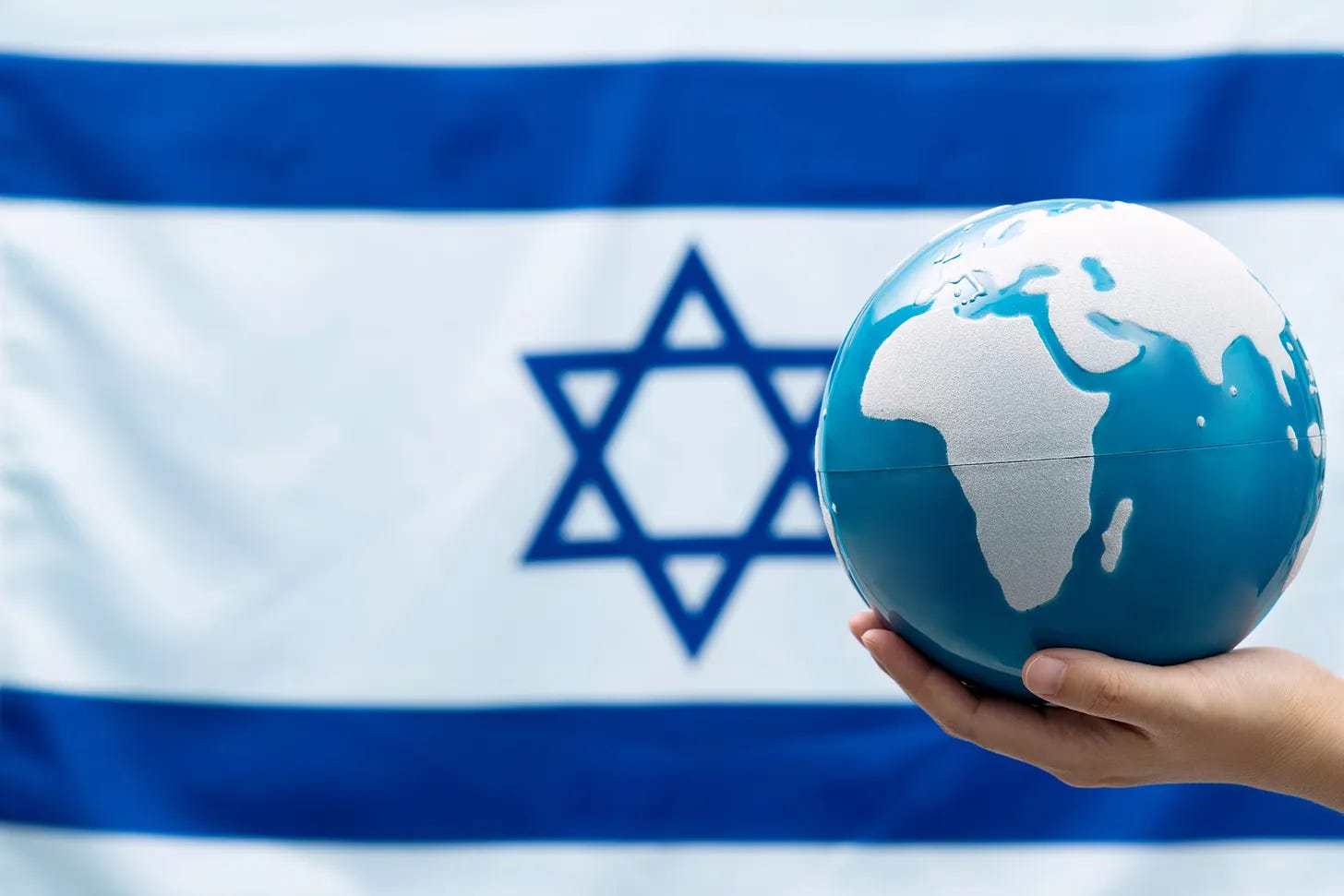If You Didn't Have a Hammer?
"Moses led us out of Egypt to Mount Sinai where we received the Torah and became permanently engaged in the most meaningful, rewarding and expansive project the world has ever known."
By Andrew Rashkow
If circumstances dictated, someone could probably manage to drive a nail into a wall with a screwdriver. The likelihood of the nail ultimately being straight or flush to the wall, or for that matter, for the hand in charge of the task to emerge unscathed would be slight indeed, but to some extent the nail could be embedded while almost certainly leaving the handle of the screwdriver a little worse for the wear. Similarly, it’s not difficult to imagine how many things in our everyday world are put to less than their less optimal use, resulting in tragedies both great and small.
Jews have a unique role to play in this world.
The Torah instructs us to be a mamleches kohanim and ohr l’goyim — a nation of priests and a light to the other nations. While the first part may be somewhat self-explanatory, the nature of light requires further reflection to better understand our charge.
Light is fascinating in that at the level of photons, it fails to conform to any known physical properties governing the world. Science has assigned this particular problematic behavior a name called “wavicle,” but the explanations underlying the nomenclature are far more murky than illuminating. Our tradition teaches that light is the most spiritual aspect of the physical world, and, as such, defies conventional description. One of our great rabbinic sages from the last century revealed an even deeper dimension of light — אור, ohr — by examining the three Hebrew letters that comprise its name: aleph, vav and reish.
The Torah conspicuously begins with the second letter of the Jewish alphabet, the beis ב, rather than the first letter, the aleph א. The beis resembles a bracket opened towards the directional flow of the text and indicates that the Torah comes to reveal to us God’s role in and purpose for creation, but God’s eternal essence remains above and beyond revelation as indicated by the absent and silent aleph, signifying the inexpressible and unknowable. The second letter in ohr, the vav ו, is also the word for “and” which indicates a connection between two different things. Finally, the reish ר, is a close approximate to the Hebrew word rosh meaning “head.” In Aramaic, the most closely related language to Hebrew, the word for head is reish. Putting all of this all together, the word for light — ohr — also represents our awareness of God in the very construction of the word: the unknowable aleph connected by the vav to the reish, the head.
With this insight, the special role assigned to Jews becomes clearer. We have been given the awesome responsibility of inculcating an ever-present Divine awareness and to foster this mindset in the world at large. And if this seems like a heavy burden to bear, it is perhaps instructive to consider our existence as slaves to Pharaoh in Egypt before we were freed as we approach Passover.
Our slavemasters — the mitzrim — dealt with us like beasts of burden. Tormented, abused and overworked, we are described as having become a people short of breadth — b’kitzur ruach. This same phrase can be translated to mean we were “constricted spiritually,” or in plainer language, we had lost sight of God. Subjected to terrible suffering, our ability to transcend our peril had been weakened until in utter desperation we cried out to God from the depths of our souls. This cry was immediately answered with wonders and miracles that the world has not seen since — and that led to the redemption which we still celebrate.
To address what we gained with our freedom, we must first deal with the lyricist responsible for perhaps the greatest misquote of all-time. Though it may be easier to rhyme, Moses never actually uttered the phrase sung enthusiastically by young and old alike, “Let my people go!” In point of fact, every declaration Moses made to Pharaoh was a faithful repetition of God’s instruction to, “Let my people go and serve me!”
What a difference a few words can make. Losing the shackles and leaving the bondage behind is only of benefit if there is a place that we need to reach. A life of aimlessly wandering does not necessarily accomplish anything more than the crumbling structures we were forced to build in Pithom and Raamses. Instead, Moses led us purposely out of Egypt to Mount Sinai where we received the Torah and became permanently engaged in the most meaningful, rewarding and expansive project the world has ever known. A project that we are uniquely qualified to fulfill.
The detailed implications of our assignment are endless and require study and guidance, but, thank God, all we are asked is to give our best effort. If each one of us improves our relationship Above, our relationship with each other and our relationship with the world a little bit more each day, tikun olam would be accomplished.
To do anything less than what we are capable of would be a shame. After all, why would anyone choose to use a screwdriver to drive a nail into the wall?
Andrew Rashkow is the CEO of Imbibe, Co-founder of Heaven’s Door Spirits, and a Jerusalem-based Teacher and Adviser.
From decoding politics to the cutting edge of wellness to the human angle on sports to parenting and personal relationships — plus our unsparing take on what’s happening in the Jewish world — the canvas at JEWDICIOUS is limitless. Our 18 scribes share one overarching goal: To present you with new ideas and slices of life that will hit your head or touch your heart!






Andrew writes truly excellent think pieces. I learn a ton about our history almost every time I read one of his articles. - MG